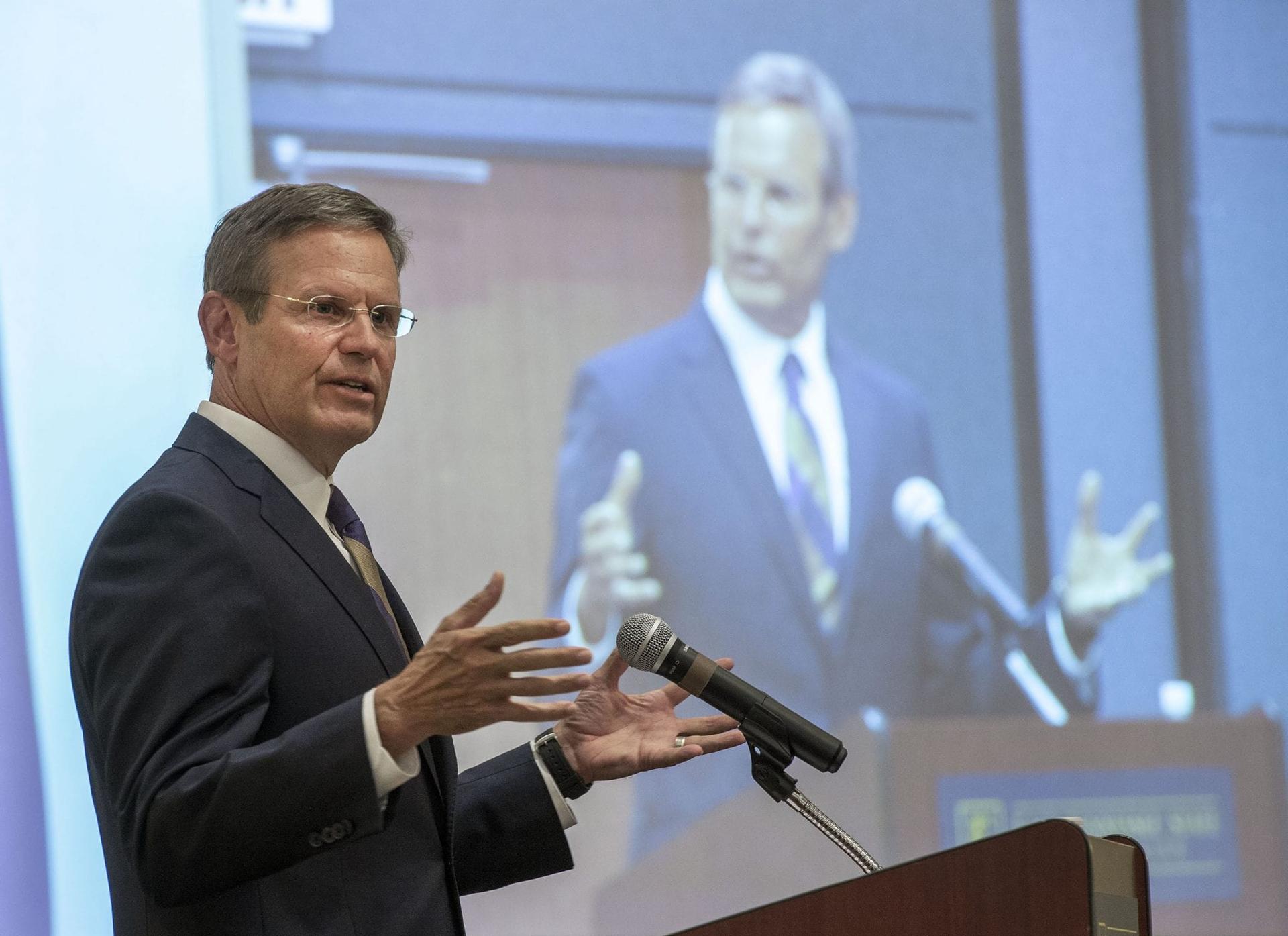NASHVILLE, Tennessee — After he surged into office last year wearing his Christian faith on his sleeve, Tennessee Gov. Bill Lee found himself running a state with a growing reputation for putting inmates to death.
With Lee at the helm, Tennessee has shown no signs of slowing down.
Lee cited his faith when he recently crossed fellow Republicans in the Legislature to keep accepting refugees in the state. Yet Lee has largely kept to himself about his views on the death penalty and how his religious beliefs shape them, even as he declined to step in and stop three executions that have come across his desk this year — two by electric chair.
That doesn’t mean he doesn’t think about the gravity of each death row inmate’s case.
In a recent interview with The Associated Press, Lee said he knew the most difficult decision he’d face as governor would be weighing the fate of an inmate’s life. His faith remains central to his views, he said, but he maintains that the death penalty is “appropriate for those most heinous of crimes.”
“I take in all of the information that is available to me and consider all of it, consider victims, consider justice, consider the crime itself, consider the verdict of the jury and the makeup of the court,” he said. “I look at all of the appeals processes. So I take in all of that information and then I face and approach the hardest day of the year for me.”
Lee has created a state office committed to “faith-based” initiatives and declared Oct. 10 an official, but voluntary, day of prayer and fasting.
Lee pointed to his own faith Wednesday when he rejected an offer by President Donald Trump’s administration to let states halt refugee resettlement. He and his wife, Maria, have also worked with refugees.
“It’s like anything, when you have a personal experience with something, then you have a broader set of information from which to make a decision,” he told AP.
Appealing to Lee’s Christian faith in death penalty cases has not had the same impact. He has said he doesn’t feel compelled to witness an execution and has declined invitations to come pray with faith leaders opposed to the death penalty on the day of executions. He’s worked with inmates in prison ministry, but said none of them have been on death row.
Lee said he discusses execution decisions with a close circle, including his wife, pastor and close friends. On the day of an execution, Lee said he usually takes the day off and spends it alone in thought and prayer.
When asked if he has to ignore the spiritual aspect of his life in death penalty cases, Lee bristled.
“I certainly don’t turn off my spiritual or moral compass in making a decision like that,” Lee said. “Every decision has multiple components to it. Being a person of faith, that gives you a lens through which you look.”
“But also being a single dad, being someone who’s had a tragedy in your life, being someone who has a relative who’s been a victim of crime,” said Lee, whose first wife died in an accident in 2000, leaving him with four children to raise alone before he remarried. “All of those experiences weigh into how you process something like this. And you don’t turn any of them off. You use all of those experiences to help make a decision.”
Lee has made criminal justice reform a top goal in office. But his clemency denials line up with other Republican governors when faced with death penalty decisions.
In Nebraska, Gov. Pete Ricketts has supported the death penalty as a Catholic, even though Pope Francis has declared executions unacceptable in all cases. Texas Gov. Greg Abbott, also Catholic, has declared the death penalty “Texas justice” and overseen the execution of nearly 50 prisoners.
In Tennessee, Lee often deflects when asked if he’s comfortable with the amount of executions that have continued to ramp up in Tennessee. He also declines to weigh in when asked about the increased use of the electric chair in those executions. The U.S. Supreme Court has never ruled on whether electrocution violates the 8th Amendment ban on cruel and unusual punishment.
Instead, he says the death penalty is a legal option in Tennessee and that he is compelled to “abide by the law.”
“The law in this state allows for that and until that law is changed – I can’t foresee whether that will change or not,” Lee said. “I can’t see whether the tone of the conversation or the attitudes of the public will change or the legislature will change, I have no way of foreseeing that.”
Six inmates have been put to death since Tennessee began resuming executions last year. Four have chosen the chair over lethal injection. The state was second only to Texas in the number of executions it carried out in 2019.
Tennessee Attorney General Herbert Slatery is asking the state’s Supreme Court to set execution dates for another nine death row prisoners.
Lee reiterated to the AP that Slatery didn’t consult with him ahead of time about requesting the death warrants. The governor said he had no plans to ask to be involved in the future.
Tennessee’s Supreme Court has not yet scheduled the nine executions Slatery requested but, the justices have scheduled one in February.
Crux is dedicated to smart, wired and independent reporting on the Vatican and worldwide Catholic Church. That kind of reporting doesn’t come cheap, and we need your support. You can help Crux by giving a small amount monthly, or with a onetime gift. Please remember, Crux is a for-profit organization, so contributions are not tax-deductible.















